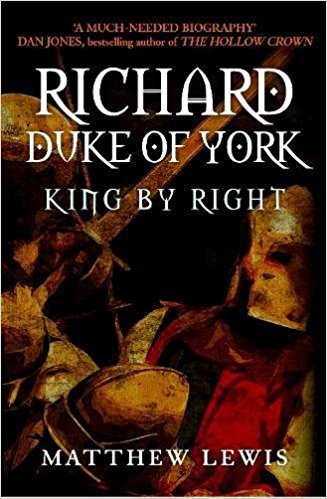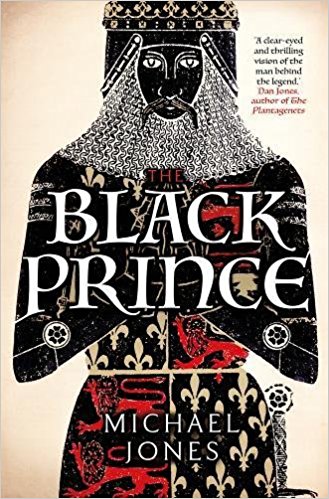
Richard, 3rd Duke of York is frequently used to recall the colours of the rainbow with the mnemonic ‘Richard Of York Gave Battle In Vain’, wrongly believed to be the Grand Old Duke of York who had 10,000 men, or mistaken for his youngest son, Richard III. The son of a traitor, he inherited a dukedom aged four, became the wealthiest man in England at thirteen and later rebelled against his king, and if he is remembered, it is as a man who ignited the Wars of the Roses. Further eclipsed by two of his sons, who would become the mighty warrior Edward IV and the recently rediscovered Richard III, he is an ancestor of the Tudor monarchs and fifteenth great-grandfather to Queen Elizabeth II, yet the man himself is obscured from view. Matthew Lewis pushes aside the veils of myth and legend to challenge the image of Richard as a man whose insatiable ambition dragged a nation into civil war, revealing a complex family man with unparalleled power and responsibilities. The first person ever recorded to use the Plantagenet name, he pushed the political establishment to its limits, dared to fight back and was forced to do the unimaginable.
~~
I was looking forward to this book for a number of reasons – firstly, because it’s Matthew Lewis, and also because Richard, Duke of York, really was kinda sorta the right person to be king if you dig through the family tree. This book didn’t disappoint at all.
Henry VI was in power, a man who was king as an infant, and England first had to go through a period ruled by the Lord Protector, the Duke of Gloucester, before Henry VI, a meek boy and then weak man, took over. Henry VI got himself a bride who was smart, strong and up to something with the Duke of Somerset. French lands in English hands were lost before Henry VI had a chance to rule them, and England was going to hell. (No offence, H6, it wasn’t really your fault).
Richard Plantagenet was a descendant of Edward III, like pretty much everyone in the War of the Roses. Through his mother, Richard was related to Edward II’s son Lionel Duke of Clarence, and through his father, Richard was related to Edward III’s son Edmund Duke of York. Edward III had five sons and three daughters who survived to adulthood (eight sons, five daughters in total, yikes!), and Richard Plantagenet was a descendant of surviving sons number two and four. As King Richard II, son of Edward The Black Prince, eldest son of Edward III, died without children, Lionel’s descendants were supposed to inherit (Richard’s mother’s family line, the Mortimers).
But the Lancaster branch took over. Edward III’s third son, John of Gaunt – the Lancaster line, usurped the throne from Richard II, led by Gaunt’s son Henry IV, leading to Henry V and Henry VI. But the Mortimer/York branches, now joined in marriage, thought they deserved the crown. And by right they did.
Richard Plantagenet sought to claim his right, resulting in the War of the Roses, killing off all the direct male descendants of Edward III, more or less. It was bloody, it was awful and needless and could be confusing if not for great books like this one. Richard had a solid claim to the throne, but Henry VI also had a claim, and was an anointed king. Richard Plantagenet is portrayed as a greedy, bloodthirsty man who tried to steal the throne, when it was essentially stolen from him by his own relatives years ago. Richard’s own father was beheaded for trying to assert the same right. Richard’s head too ended up on a spike, and his son Edmund was killed with him.
But two of Richards’ three remaining sons went on to be kings – Edward IV and Richard III (they killed their other brother, long story). Richard may have been killed in 1460, but his seven surviving children all continued to fight as Yorks against the Lancasters for the right to the throne, ending with Richard’s granddaughter Elizabeth, who married Lancastrian Henry VII and became queen, ending the wars for good.
A huge thanks to Matthew Lewis for this book, giving Richard Plantagenet a book of his own to show him as more than a usurper who got what he deserved. The Yorks had every right, just as Richard believed.

